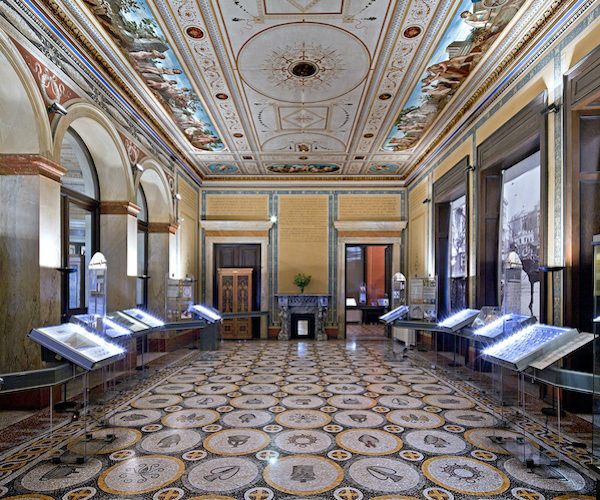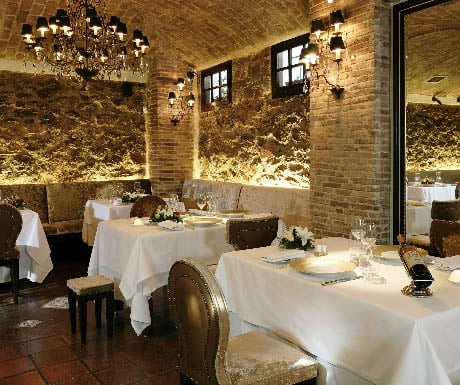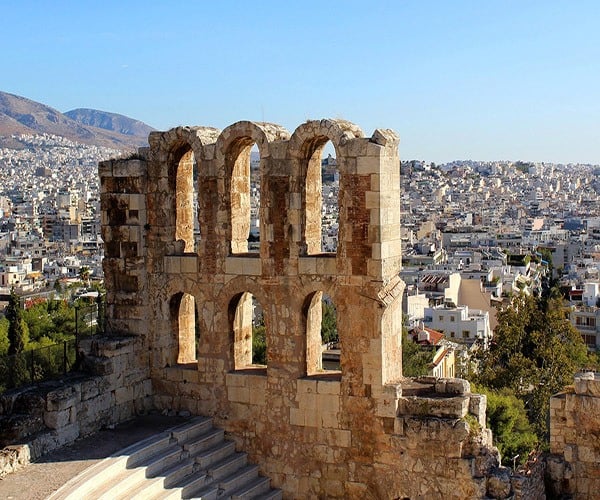Athens Travel Guide
Home > Travel Guides > Greece > Athens Travel Guide

LUXURY TRAVEL
Athens Travel Guide
A timeless city of irresistible charm, Athens combines ancient mystery and contemporary culture like nowhere else on Earth. Stroll through atmospheric streets, mingle with friendly locals, and sample incredible food and wine beneath the millennia-old magic of the omnipresent Acropolis.
Introduction to Athens
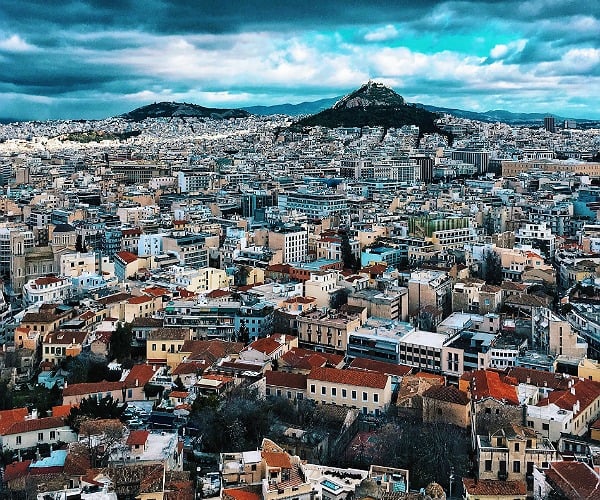
The birthplace of Western civilization, Athens is one of the world’s oldest cities, with a recorded history dating back over 3,400 years. Home to Plato’s Academy and Aristotle’s Lyceum, the powerful city-state was a vibrant center for philosophy and the arts.
Today, Athens is the hub for finance, politics, culture, and economics in Greece. Home to the famed Acropolis and Parthenon, it became the first city to host the modern-day Olympics in 1896, and in 2004 it became one of the few cities in the world to host it multiple times.
Resting in the shadow of the Acropolis, Plaka is the oldest neighbourhood of Athens. Often referred to as the Neighborhood of the Gods due to its proximity to the Acropolis and many other archeological sites, the charming village-like district comprises picturesque streets, historic landmarks, and lively shops.
The best way to see Plaka is to simply wander its labyrinthine lanes, catching glimpses of the Acropolis between the stunning neoclassical buildings and Byzantine churches, quaint and quirky cafes and restaurants, and boutique souvenir shops.
The neighborhood Monastiraki, meaning ‘little monastery’, is named after a large monastery that once occupied the main square. Today, the small 10th-century Pantanassa basilica on the square is all that’s left. It is here that old and new Athens come together, where layers of history intersect with the buzz of commerce and craftsmanship.
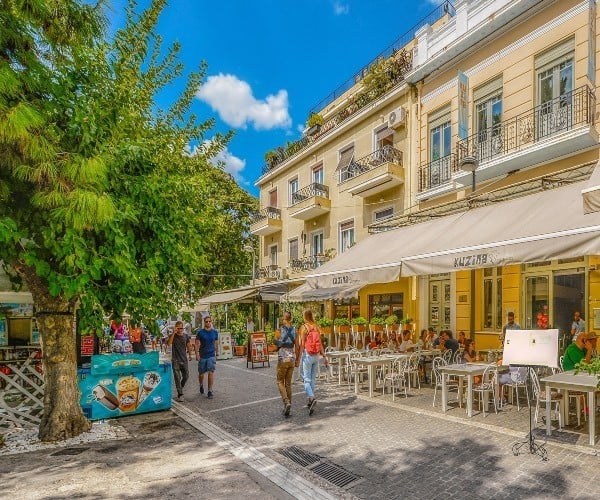
This vibrant neighborhood is filled with diverse architecture and attractions that you can explore, from the Tzistarakis Mosque, built during the Ottoman era, to the pillars of Hadrian’s Library, built in the 2nd century A.D. One of the main attractions is Monastiraki’s Flea Market which takes place every Sunday—a lively bazaar overflowing with stalls selling everything from handmade jewelry, accessories and clothes to relics, rugs, carpets, and typical souvenirs. Colorful traditional restaurants and tavernas are scattered throughout the neighborhood, where you can sit and relax and savor authentic and delicious national dishes while watching the world go by.
Otherwise known as Constitution Square, Syntagma Square is the most important square in Athens and the entire country. Located in the heart of the capital, it’s where the Athenians rose up against King Otto of Greece on September 3rd 1843, to demand a constitution.
Syntagma Square is bordered by five-star hotels, an array of shops and the Parliament house and continues to act as a major point of commercial, political, and social life. Bustling with locals and tourists alike, it is packed full of life and atmosphere.
The aristocratic neighborhood of Kolonaki, meaning ‘slight column’, is located at the southernwestern slope of Lycabettus Hill and named after a small column that stands in the center of Kolonaki Square. Take a cable car to the top of the hill to discover the beautiful whitewashed Agios Georgios church and witness incredible views of the city.
Kolonaki is one of the most elegant and stately neighbourhoods in Athens, defined by its beautiful neoclassical and modernist buildings. It’s home to chic restaurants, trendy cafes, abundant boutiques, and lots of lovely parks and gardens.
This neighborhood has a grungy and tainted past, however Kerameikos is reinventing itself as the new gallery and gourmet quarter of Athens, offering Michelin-starred dining and modern galleries galore. Its profile is rising within the foodie scene, thanks to the enticing mix of creative restaurants, interesting neo-taverns, and ethnic hangouts.
Within the neighbourhood of Kerameikos is the ancient cemetery of Athens, one of the most beautiful and least visited archaeological sites in the city. The stunning site is named after the potters who settled there around 3000 BC, and it was then used as a cemetery during the 6th century AD. Numerous marble stelae (grave markers) are beautifully carved with portraits and familiar scenes, portraying a vivid sense of ancient life.
History of Athens
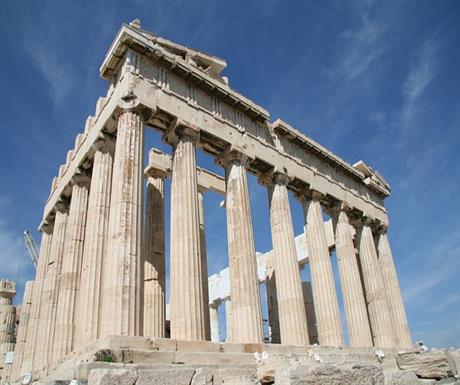
Athens’ history spans over 3,400 years, encompassing neolithic times, ancient and classical periods, the Golden Age, Byzantine times, and the Ottoman era, all of which are represented through the city’s architectural masterpieces.
What’s more, Athens’s cultural and political legacy rippled out across the world: The Ancient Greeks brought us the tools, knowledge and infrastructure to build modern society, from democracy and philosophy to science, education, taxes, and writing.
The founding of Athens is preserved in mythology. According to the famous myth, Phoenician King Kekrops founded a city on a huge rock near the sea. The gods of Olympus proclaimed the city should be named in honour of the deity who could provide the most valuable gift for mortals.
Athena, the goddess of wisdom, produced an olive tree, symbolizing peace and prosperity. Poseidon, the god of the sea, used his trident to strike a rock and create a saltwater spring, to signify great maritime power. The gods judged that Athena’s gift, which would provide food, oil and fuel, would better serve the citizens and so the city was named after her.
Athens is the birthplace of the concept of democracy. In the year 507 B.C., the Athenian leader Cleisthenes introduced a new political system that he called demokratia, meaning ‘rule by the people’. This was the first known democracy in the world, and although this Athenian democracy survived for only two centuries, its invention was one of ancient Greece’s most enduring and influential contributions to the modern world as it paved the way for representative democracies across the globe.
Few cities have a history as deep and rich as Athens. It is incredible to consider that rarely an idea is discussed today that was not already debated in this city millennia ago by the great philosophers, dramatists, and historians of Ancient Greece, whose talent, inspiration, and vision laid the foundations of modern civilization.
“One thing I know, that I know nothing. This is the source of my wisdom.” Socrates, philosopher of the 5th century BC.
“There is nothing permanent except change.” Herculitus, philosopher of the 4th century BC.
Where to stay in Athens
Athens is a big city, so ensure you stay in a prime location for the attractions and experiences you most want to encounter. The historical center is where the world-famous Acropolis can be found, and where most people choose to stay. The city center is divided into many smaller neighborhoods, each with its own charm and unique perspective of the city, only a short walk to most of the main attractions.
Syntagma Square is in the heart of the city and is highly recommended for those visiting for the first time due to its central location and accessibility to the rest of the city. Witness the changing of the guard at the Hellenic Parliament, and soak up the lively atmosphere of the many restaurants, bars, and shops – day and night.
If you are looking for another central location with a little more character, the Plaka neighborhood is situated right at the base of the Acropolis. The area has evolved a lot over the years, gaining popularity with new and exciting restaurants, bars, and hotels. Its colorful buildings and charming narrow streets are a perfect base for an Athens adventure.
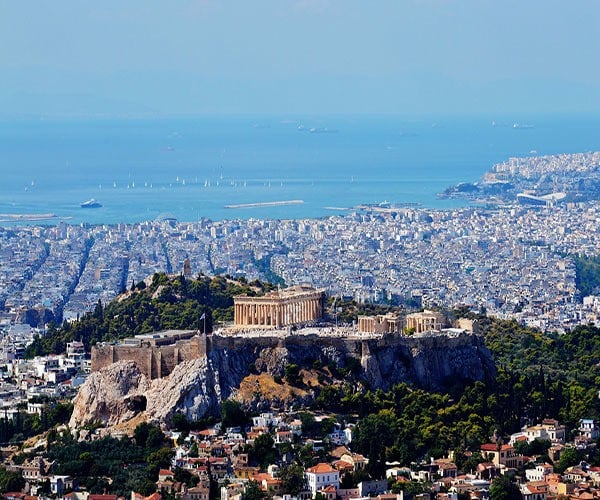
For those looking to combine a cultural city stay with a relaxing beach-side vacation, the southeast coastline of Athens is home to myriad beaches, coves, marinas, and parks, each with its own quirks and charms. Whilst sandy beaches and tranquil waters may not be the image that springs to mind when coming to the metropolis of Athens, this is yet another delight the city has to offer. Spend your mornings sightseeing ancient wonders, and your afternoons basking in the sun: the Athens Riviera awaits you.

Accommodation in Athens
Athens is a city that has been rebuilt and reconquered many times throughout history, leaving layers of multicultural footprints. As a popular tourist destination, it offers abundant choices for accommodation, from large resorts and boutique hotels to luxury apartments and private villas.
The larger hotels, such as the Four Seasons Astir Palace Hotel or Hotel Grande Bretagne, allow you to combine a city break with opulent luxury, offering a spa, rooftop terrace views, glamorous suites and fine dining.
Boutique hotels are bountiful throughout the city and each carries its own unique charm and character, be it a blend of modern and traditional Greek design, ancient architectural themes, beautiful gardens, or a perfect location.
When staying in the city center and in the surrounding smaller neighborhoods, opt to stay in rooms on the higher floors, as they offer spectacular views of the Acropolis and Lycabettus Hill. Wake up, open the curtains, gaze across the skyline, and imagine everyday life in this magical city.
Places to visit in Athens
Athens has so many incredible experiences around every corner, from archaeological wonders to cultural discoveries, that it may seem a challenge to fit everything in.
No trip to Athens would be complete without exploring the famous Acropolis, an ancient citadel located on a rocky outcrop above the city. Pair your visit with a tour of the New Acropolis Museum, which unites formerly dispersed collections, painting an immersive picture of life among the ancient temple complex.
The National Archaeological Museum is Greece’s largest museum and houses rich collections that provide a panorama of Greek civilization from the dawn of prehistory through to late antiquity. Discover the treasures from the royal tombs at Mycenae to the superbly preserved wall paintings from the prehistoric settlement of Thera, today known as Santorini.
Wander through Athens Central Market and soak up the sights, sounds, and aromas of fresh fish, meats, and vegetables, or admire the striking neoclassical architecture of the National Library. For some local-style pampering, book a rejuvenating treatment at Polis Hammam, and on a clear night, head to Athens Planetarium to gaze up at the moon.

Stroll through the stunning National Gardens, the former royal gardens, and emerge among the towering columns of the Temple of Olympian Zeus, which, along with nearby Hadrian’s Arch, forms the ancient gateway to the city. At the southeast edge of the National Gardens, wander through the dazzling white marble arena of the Panathenaic Stadium, where the first Olympic Games in modern history were held in 1896.
The Hellenic Parliament Building in Syntagma Square is an exquisite example of neoclassical architecture. With a guided tour, gain fascinating insights into the history of the building and explore the grand rooms, such as the Assembly Hall and the debating chamber learning more about Greece’s modern history.
If you’re looking to escape the urban buzz, take a trip to Cape Sounio, where the ancient Temple of Poseidonperches dramatically on the cliff-edge, looking across the turquoise Aegean, in homage to the god of the sea. First mentioned in the Odyssey, the “sanctuary of Sounion” has been a landmark for sailors from ancient times to today. Supposedly, it is the place where Menelaus stopped on his return from Troy to bury his helmsman, Phrontes Onetorides. We suggest an afternoon trip to experience the stunning sunset, enjoy a dip in the ocean, and savor dinner on the shore.

Things to do in Athens
Athens’ ancient ruins give rise to a playground of activities and experiences.
Learn about the history of the Olympic Games during a fun and interactive experience with your family. Begin your day as an Olympic athlete at the stunning neoclassical mansion, Zappeion, and learn about the role the ancient games played in society, how the athletes trained and what disciplines were included.
Having brushed up on your knowledge, try your hand at some classic techniques for old events, such as the discus and the javelin, and then practice newer ones such as the shot put, long jump, and relay races.
Finally, at the Panathenaic Stadium, the only stadium in the world made entirely of marble, prepare for a truly unique experience – a race on the track where the first modern Olympians competed more than a century ago.
Foodies can discover a different Athens and join locals in their everyday life, experiencing a tasty slice of true modern Greek culture and delicacies. A culinary journey through various traditional neighborhoods takes you to carefully selected specialty food stores to taste some of the finest olive oil, cheese, and honey as well as treats such as pastourma and other cured meat. Continue through the bustling alleys of Varvakios, the picturesque fish, meat, and vegetable market and finally stop at a local joint for an authentic taste of the celebrated Greek souvlaki (grilled meat and vegetables on a skewer) and loukoumades (bite-sized sweet dough balls with honey).
Athens has a buzzing street life and art culture. With a local guide, walk the streets and discover the graffiti art scene, which emerged in the late 1990s and has developed its own distinctive style over the past ten years, especially as the Greek financial crisis was unfolding.
As the sun sets behind the Acropolis, experience Athens like a true Athenian. The city’s vibrant nightlife scene boasts hundreds of trendy bars and top clubs, music venues, open air theatres, and live performance stages. The amazing array of music styles and entertainment genres is met in equal measure by the friendly and boisterous character of the Greeks.
Food in Athens
From Michelin-starred restaurants to Mediterranean fusion, the Athens gastronomy scene is blazing, offering an explosion of cafes, bars and eateries. Its huge population growth after the second world war has created a diverse and interesting food heritage, due to people migrating from all over Greece in search of work.
Like many of the Mediterranean cuisines, Greek food was formed from the ‘Mediterranean triad’ of olives, grains, and grapes. Many Greek recipes feature tomatoes, aubergine, and okra, and the typical herbs and spices used to flavor Greek dishes include oregano, mint, thyme, and fennel. Due to the country’s climate and terrain, they tend to breed goats and sheep over cattle, whilst the Greek coastal diet prominently features fish and other seafood dishes. A great variety of cheese can also be found in Greek cuisine, some of the most popular being feta, kasseri (similar to a mild cheddar), and kefalotyri (similar to pecorino cheese).

Greece is famous for many speciality dishes, and Athens offers everything from delicious grilled meats cooked up by street food vendors to exotic sweet treats at popular local restaurants. Spanakopita is a savoury pastry of spinach, herbs, and feta encased in flaky phyllo. Saganaki is usually eaten as an appetizer and made with just two ingredients, flour and graviera cheese mixed together and then fried. For a tasty veggie treat, kolokythokeftedes (courgette balls) are a must-try authentic Greek dish—perfect to dip into some garlicky tzatziki.
Whilst in Athens, the Ergon House Project is a place to taste and experience traditional Greek recipes and buy local products to bring home. It combines restaurant, deli store, and hotel for a modern gastronomy-oriented experience. Located on Mitropoleos Street in the heart of Athens, the hotel, restaurant and deli has become a global name in Mediterranean food and Greek cuisine culture due to its hand-picked premium products, strong atrium aesthetics, and commitment to nurturing small local producers.

Getting around Athens
Getting around Athens is easy, whether you choose to walk, use public transport, or take a taxi.
The city has made significant improvements in its transportation in recent years, particularly after hosting the 2004 Olympics. Athens’ metro system is one of the oldest in the world, with Line 1 dating back to 1869. The system’s three lines cover many of the main sights, including the Acropolis and its eponymous museum.
Similarly, the tram system has three lines which connect the city center to the southern seaside areas. If you are looking to escape the city for a day, and bask in the sun or take a dip in the sea, the tram can take you to the Athenian Riviera with ease and comfort.
There are plenty of taxis in Athens. If you hail one from the street, make sure you ask the driver to use the meter. Alternatively, the BEAT app allows you to order and prepay for a taxi online, simplifying the booking and payment process.
Whilst there are various transportation options for getting around Athens, travelling on foot is the best way to experience the city, to get a true sense of its atmosphere and to see all the sights and hidden gems along the way.
When to visit Athens
Athens is a city which can be visited all year round, as each season offers a different perspective on its ancient wonders. That said, certain months such as April, May, September and October offer a more pleasant climate and vibrant atmosphere.
April and May are the springtime months in Athens, when the weather is warming up and the city is in full bloom with bougainvillea. There are plenty of visitors to create a lively buzz but there are few crowds, allowing you to avoid the queues and enjoy the sights.
During the height of summer (June to August), the heat can be unbearable at times and the crowds can be equally intolerable. Should you choose to visit during the summer, ask a travel advisor to time excursions and book private transfers to make the adventure more pleasurable.
As summer fades and turns to fall, September and October will offer a similar experience to spring in terms of climate and crowds. The days are a little longer and the weather a little warmer, offering pleasant evening strolls through the city and outdoor dining on charming terraces.
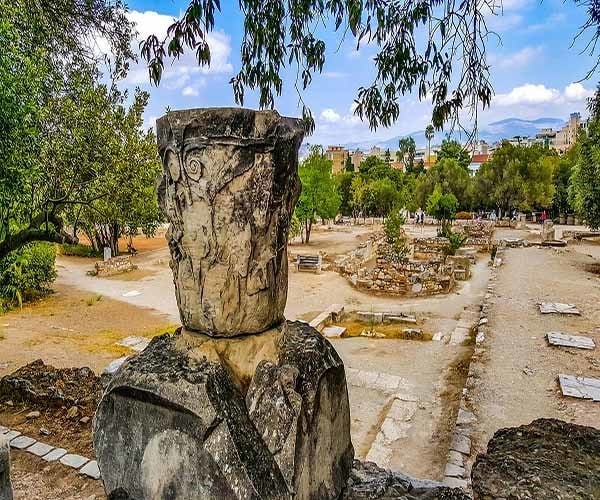
Events in Athens
There are many exciting and varied events held in Athens, however they are subject to change according to government guidelines during the current circumstances. From outdoor movies to jazz festivals and avant-garde theater performances at ancient venues, Athens has festivals for all ages and interests throughout the year.
January
Epiphany
February
Athens International Dancing Festival
March
Independence Day
April
Athens Video Art Festival
May
Athens Street Food Festival, Performances by Theatre of Dora Stratou, Athens Video Art Festival
June
Performances by Theatre of Dora Stratou, Open Air Film Festival
July
Performances by Theatre of Dora Stratou, Athens International Dancing Festival, Athens and Epidaurus Festival
August
Performances by Theatre of Dora Stratou, Assumption Day
September
Performances by Theatre of Dora Stratou, Athens Coffee Festival, Athens Book Fair
October
Performances by Theatre of Dora Stratou, Ochi Day
November
FoodTech Expo Greece, International Film Festival Athens
December
Luxury travel tips
The best way to get a true sense of Athens is by hiring a guide to tour the main attractions and unearth the city’s secrets. With local guides’ expert knowledge, gain insight into the history and culture, and experience authentic interaction with Athenians.
For the most stunning views of the city and to avoid the crowds, visit the Acropolis and Lycabettus Hill at sunset. Watch as the sky fades from blue to orange, setting behind the ancient ruins and casting a beautiful glow of the entire city.
If you are looking to wander off-the-beaten path, visit the small open-air archaeological site, Plato’s Academy and walk in the footsteps of the great ancient philosopher in his famous school.

When it comes to restaurants, it is best to make reservations, especially if the venue offers a view—in which case you should specify if you’d like a table outside. Whilst there are many restaurants throughout the city, the best and most popular can fill up quickly. Street food, on the other hand, should be spontaneous and experimental. Follow the smells and do as the locals do, choosing authentic stalls that offer real Greek food.
If you are visiting the Athenian Riviera for the day, reserve a sun lounger or cabana at one of the beach clubs. This will provide you with a luxurious and relaxing experience, alongside premium service, especially at times when the beaches can get crowded.
If you are looking to charter a yacht and sail the beautiful Greek islands, most yacht charters start in Athens, making the city a perfect starting point for an island adventure.

Language and culture
Greek is known for being a difficult language for foreigners to grasp, and whilst a simple ‘yia sas’ (hello) or ‘efharisto’ (thank you) are welcome and warmly appreciated, learning or understanding Greek is not necessary to get by, as most Greeks speak English alongside one other language.
This kind of appreciation for history is not seen widely across Europe, yet in Greece it is part of the modern way of living, they understand the past in order to appreciate the present.
In terms of photography, avoid using flash or photographing the main altar in places of worship as this is considered taboo. At archaeological sites, using a tripod indicates you are a professional and thereby requires special permissions.
For shopping, Ermou is Athens’s main street, where you can find local boutiques and international brands sitting side by side. The adjacent Monastiraki Square is perfect for souvenirs and traditional handmade pieces, and there are lots of great bars for a refuel with stunning Acropolis views.
For evening entertainment, Plaka offers the most energetic and exciting buzz in the city, from quirky bars to quaint restaurants and lively nightclubs.
Useful phrases
- Good morning – kaliméra
- Good evening – kalispéra
- Good night – kaliníhta
- Hi – yah sas
- Yes – ne
- No – óhi
- Thank you – efcharistó
- Please – parakaló
- How are you? – tikanis
- I don’t understand – Den katálava

Weather in Athens
Visiting Athens soon? See below for the latest weather forecast for Athens.
Useful information
Currency
Greece is part of the European Union and the currency in Athens is Euros.
Power
Greece operates on a 230V system and uses 2 pin plug sockets accepting type C or F plugs.
Telecommunications
Vodafone, Wind, and Cosmote are the three main mobile companies operating in Greece. It is worth checking whether your phone company has roaming capabilities, as many networks will allow you to use your phone in Greece free of extra charges. If your phone is unlocked, you will be able to buy a sim card from a network’s store in Athens. Like in other European countries, Greek people often use Facebook Messenger and WhatsApp over SMS messaging.
Timezone
UTC + 2 in winter and + 3 in summer.
Tipping
Tipping is sometimes done in restaurants. It is not usually expected, but if you have received good service it is recommended to leave between 5% – 10%. This can be done by leaving it on the table with the bill, giving it to the waiter directly, or telling the waiter to keep the change.
WiFi
There is free wifi in most public places in Athens. You will even be able to find it on most trains and buses, though it may not be the most reliable.


